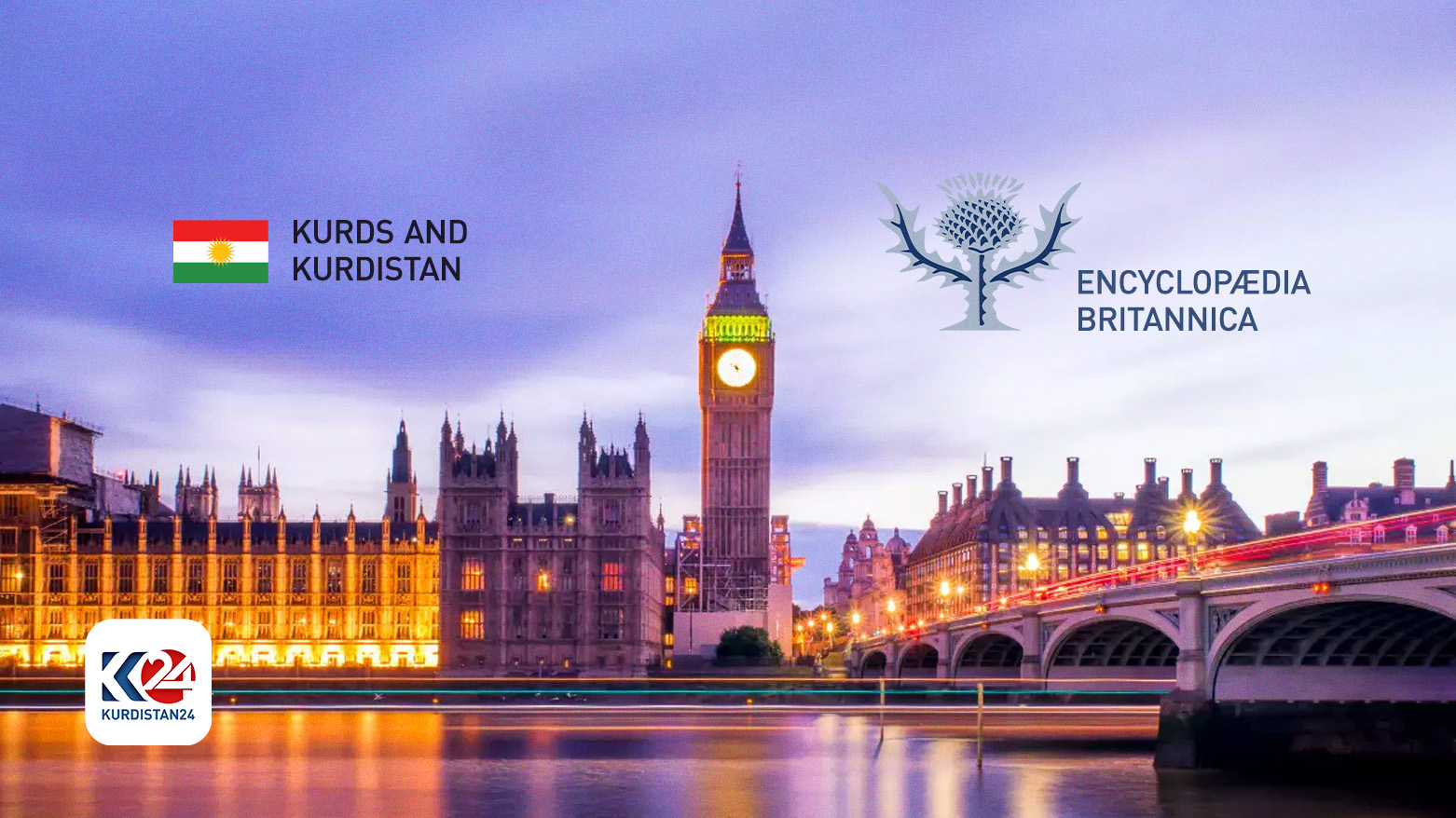Britannica Encyclopedia, most updates about Kurd, Kurdistan
The Britannica encyclopedia revealed that Kurd’s ancestors sound to have inhabited the same land for millennia.

ERBIL (Kurdistan24) – On the Britannica encyclopedia, the well-known and reliable source internationally as well as most trusted and recognized encyclopedia, updated her article about Kurd and Kurdistan in June 2024.
It is stated by this source, regarding their article about Kurd, they are an independent ethnicity and owns an independency linguistically among the other neighboring nations.

The defined geographical referred to as Kurdistan (Land of the Kurds), Kurdistan starts from Taurus Mountain of the south eastern Anatolia (north of Kurdistan), the Zagros Mountain which taken over politically by Iran government (east of Kurdistan), extends to the major 4 cities Erbil, Duhok, Kirkuk, and Sulaimani, portions of the northern Iraq (Kurdistan Region), northeastern Syria -west of Kurdistan –Rojava, and western Armenia and other suburbs.
The encyclopedia affirmed most Kurds live in contiguous land, that known of being divided between Iran, Turkey, Iraq, Syria. Each of those countries took part to take Kurids’ rights away. Iran’s western province called it Kordestān and Iraq recognized as Kurdish autonomous region (Kurdistan Region Government).

There is also a considerable community live in the western Armenia, in which it is believed that Kurds (Shaddadi Kurds) ruled what is called nowadays modern Armenia.
Moreover, Kurds live in diasporic communities in Europe and around the world, for example according to the Office for National Statistics ONS for the UK census in 2021, there are 76000 Kurds live in England and Wales.
A sizable noncontiguous Kurdish population exists in the Khorāsān region, registerd in the encyclopedia.
History
Britannica has not revealed any prehistoric about Kurds, yet it hasn’t hidden away an important piece of information which is Kurd’s ancestors to have inhabited the same land for millennia. However it is mentioned by some western writers that Kurdish Empire ruled what is called now west of west Asia and the middle east.
The Guti believed to be Kurds in the 3rd and 2nd millennia BCE. The Greek historian Xenophon talked about The Kardouchoi,in 401 BCE, he highlighted Kurds lived in what’s now known as Zakho in Kurdistan Region.
Britannica stated that throughout the history Kurds ruled as ancestral line, they ruled the territories what are now Iraq and Iran.
Society
Kurds had their role in revolving throughout Mesopotamian plains, and highlands of Turkey and Iran. The nowadays traditional Kurd society has been either tribe, clan, or Agha, they were in form of firms.
Culture and Education
Britannica affirmed that the first Kurdish newspaper appeared in 1897 and was published at intervals until 1902.
It has also confirmed “Kurdish women—who traditionally have been more active in public life than Turkish, Arab, and Iranian women. They have taken advantage of the urban educational and employment opportunities”
Politics
It has highlighted the oppression Kurds faced from the governments subsequently Syrian, Iraqi, Turkish and Iranian.
Encyclopedia mentioned that 20 percent of the Syrian Kurdish west of Kurdistan (Rojava) population at the time—were deemed “foreigners” by the government, and who were officially called unregistered (maktūmūn).
Britannica affirmed the Kurds in Turkey (the north of Kurdistan)received unsympathetic treatment at the hands of the government, which tried to deprive them of their own identity and were labeled as (Mountain Turks) and outlawed the Kurdish language.
Regarding Iraqi goverments, Britannica encyclopedia registered that in the late 1970s Iraq’s Baʿath Party instituted a policy of settling Iraqi Arabs in Kurdish cities. Then in the beginning of 1988, it attacked Kurdish civilians with the chemical weapons. Iraqi troops killed and quelled thousands of Kurds under the name of Anfal campaign.
The encyclopedia talked about the Iranian government authorities' violence and suppression against Kurds, and aiming at Kurdish regions in the country’s northwest (east of Kurdistan). Likewise other governments, Iran killed many civilian Kurds, deprived them from their own culture, language, entity and identity. It also launched ballistic missile and drone attacks on some parts of Erbil the capital city of Kurdistan Region, and carried out assassinations and murdering civilian Kurds.